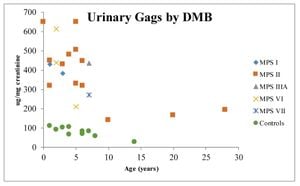Egypt's agricultural sector received renewed attention as local officials emphasized the significance of instructive seminars aimed at enhancing crop productivity and improving farming practices. Hazem El-Ashmony, the Governor of Sharqia, highlighted the role these gatherings play not only in increasing yield but also in helping farmers improve their living standards and achieve self-sufficiency.
During this effort, the Ministry of Agriculture organized an awareness workshop focusing on the cultivation of mulberry trees, which is closely linked to sericulture—the production of silk from silkworms. This workshop was executed with the collaboration of the Plant Protection Research Institute, showcasing how agricultural practices can pivot toward innovative and sustainable methods.
Emad Mohamed Gengan, Deputy Minister of Agriculture, detailed several important topics discussed during the seminar. The workshop included the following main themes: the cultivation of mulberry trees with the aim of breeding silkworms for natural silk production, nurturing both juvenile and mature silkworms, care and management of the silkworm breeding process, the various aspects of cocooning, and the economic importance of silk production.
Such initiatives are part of Egypt's broader goals for economic development, particularly within the agricultural sector, which is seen as pivotal for the country’s self-sufficiency. This emphasis on sustainable practices not only aims to boost local output but also ensures farmers are equipped with the necessary knowledge and tools to thrive.
According to current statistics from the Ministry of Agriculture, the demand for silk produced locally is increasing, highlighting the potential for growth within this niche market. El-Ashmony noted the concerted efforts being made to promote these projects, which he described as integral to enhancing the quality of life for farmers.
The government's approach extends beyond agriculture. The Egyptian Ministry of Education is currently facilitating access to educational resources, ensuring students receive necessary preparatory materials for their final examinations. On February 27, the ministry announced the availability of model examination templates for secondary school students accessible on their website, supplemented by instructional programming on the 'Madrasetna 3' channel.
Each day, the ministry releases materials for different subjects and is encouraging students to engage with these resources via the channel, which offers solutions to the model questions. The educational ministry is taking great strides to augment student performance and confidence leading up to exams by providing exemplary educational content and training sessions aimed at comprehensively addressing the curriculum.
Efforts include making solutions to model exam papers available on the 'Madrasetna 3' channel, with specific time slots dedicated for each subject. Measurement of how these initiatives improve educational outcomes remains to be seen, but it aligns with the ministry's objectives to advance student preparedness and success.
Moving forward, the Ministry of Education and the agricultural sector seem poised for growth through the integration of innovative practices and improved educational systems, utilizing technology to bolster agricultural practices and educational resources for the youth of Egypt. These efforts represent steps toward holistic national development, aiming to improve both agricultural outputs and educational outcomes.



